It's important to know the best foods for hypothyroidism so that you can keep it under control! Learn all you need to know from our guest RD.

Diet plays an important role for all the medical issues we deal with, often more than we know. Specialist Lisha Knicely helps us with the ins and outs of diet and hypothyroidism!
Podcast: Play in new window | Download | Embed
Subscribe now! Apple Podcasts | iHeartRadio | TuneIn | Deezer | RSS | More
Lisha Knicely is a Registered Dietitian and Integrative & Functional Practitioner specializing in hypothyroid conditions. Being a Thyroid Warrior herself, Lisha understands what it's like to both live with and treat this common yet complex condition.
Lisha's approach is comprehensive and holistic in nature; taking into consideration the immense positive impact that lifestyle and nutritional changes have for managing endocrine and metabolic disorders, like hypothyroidism.
Being a part of and serving this community is a true passion for Lisha making her work both enjoyable and extremely rewarding. Download her FREE guide today!
Hypothyroidism Definition and Types
Hypothyroidism is a term to describe a low state of thyroid function. There are many conditions that fall under this but the most common cause is Hashimoto's disease.
Hashimoto's is when the immune system is targeting and attacking the thyroid gland and causes the thyroid to be under active. Hashimoto's antibodies can be elevated for years before it causes damage so make sure to get checked if you suspect you have it.
Some symptoms of hypothyroidism are:
- Weight loss resistance and weight gain (the thyroid is the master control gland for your metabolism)
- Fatigue
- Hair loss
- Cold extremities
- Elevated cholesterol
- Depression anxiety
- Digestive issues
Most of the time this is a byproduct of lifestyle.
Tips to Help Manage Hypothyroidism
The first thing we do is look at a person's lifestyle and figure out what needs support. Reasons that can affect the thyroid are:
- Poor sleep
- Not managing stress (one of the biggest culprits and wreak havoc on the immune system)
- Poor diet
- Nutrition deficiencies
It varies from person to person so an individualized approach is important. We need to be advocates of our own bodies.
Foods Good for Hypothyroidism
In a broad sense, you want to be eating whole foods. Taking a close look at your diet and seeing how many whole foods are you eating can be helpful.
Eating a diet rich in plant foods can offer antioxidants, polyphenols, fiber, etc which can all help.
Make sure you eat high quality protein, whether it's animal or plant based, getting quality is the key.
Also, healthy fats are so important for hormone health as they are needed to absorb certain vitamins.
Overall, wee are each different so our needs of different levels of fat, protein, carbohydrates will vary.
With Hashimoto's, try eliminating certain foods to see how you feel. While dairy, soy and gluten can cause issues for some, it isn't necessarily an issue for all so taking them out to see how you feel is important.
With autoimmunity it's worth to investigate with food to see if you are better off with some over others.
What Foods Can Make Hypothyroidism Worse?
The main foods that cause issues for hypothyroidism are things called Goitrogens. These are foods that cause a goiter, which is the swelling or enlargement of the thyroid gland.
When the thyroid gland is enlarged, it prevents the uptake of iodine. This in turn prevents the thyroid from efficiently making thyroid hormones.
Goitrogenic foods include vegetables in the Cruciferous family, some of which are:
- Cabbage
- Broccoli
- Cauliflower
- Kale
- Brussels sprouts
- Radishes
You want to avoid high amounts of these foods in their raw state, however can cook them to reduce the goitrogenic effect.
Also, make sure you are getting enough iodine overall.
What Should You Drink?
There are some things you can focus on drinking to help as well. Focus on getting plenty of filtered water.
Also, you still need high quality salt so getting in electrolytes is helpful. If you eat animal products, bone broth can be great for the gut.
Drinking herbal teas and kombucha tea are great as well. Kombucha has probiotic benefits, which is also gut friendly.
When it comes to coffee and alcohol, you want to limit or reduce it but they are okay in moderation. Coffee can affect other things like sleep and stress, so keeping it to 1-2 cups a day is best.

PS- If you liked this episode of Real Food Real Conversations, please subscribe and leave me a review!
And tag me on Instagram whenever you're listening! I reply to all my messages!


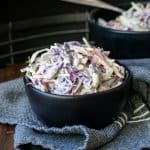
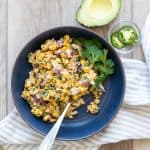
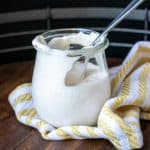

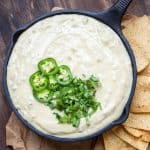





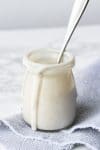

Questions or comments? Let me know below!